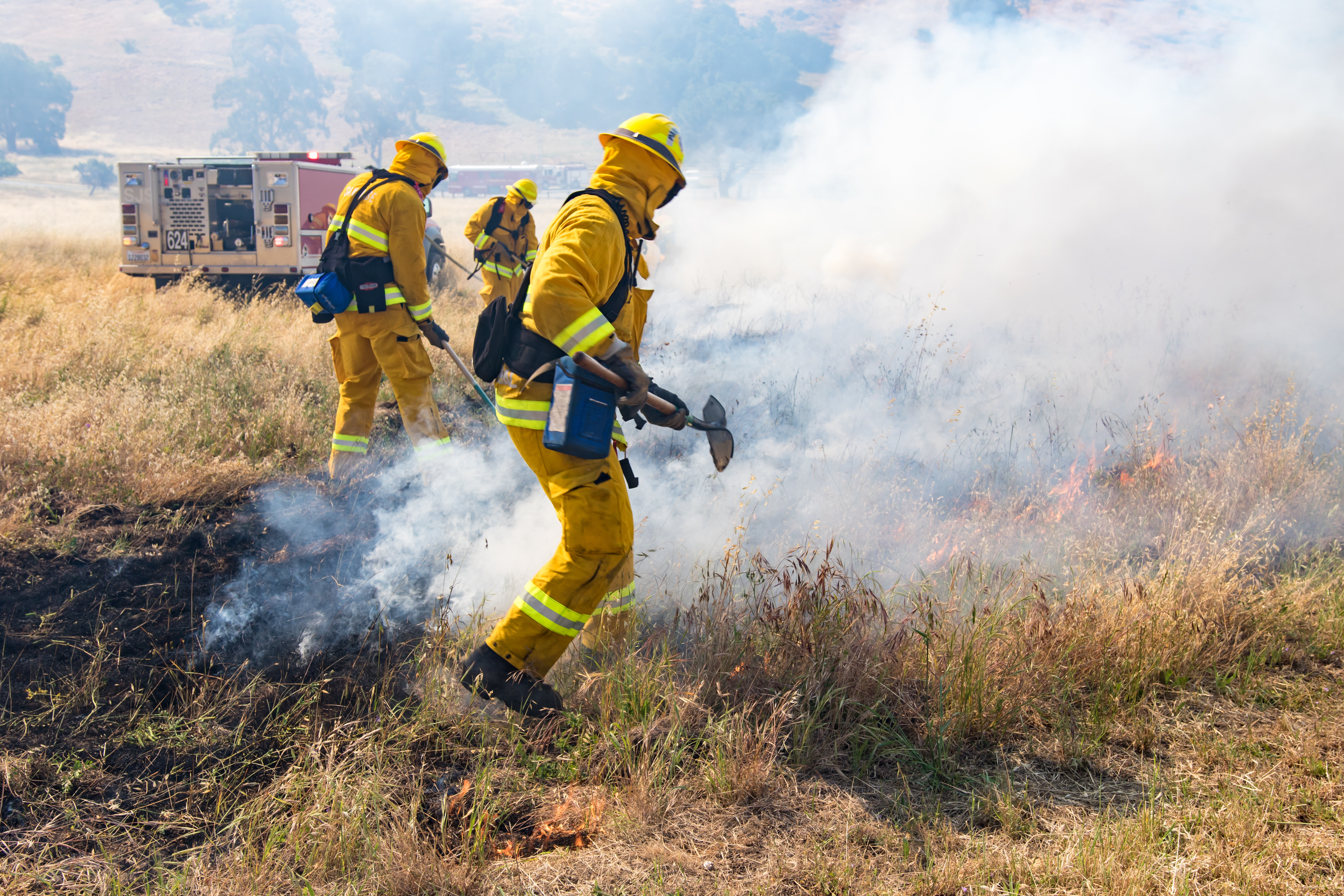Dr. Alberto Caban-Martinez, D.O., Ph.D., M.P.H., C.P.H., Assistant Provost for Research Standards, Associate Professor of Public Health Sciences at the University of Miami Miller School of Medicine’s Department of Public Health Sciences, Deputy Director of the Florida Firefighter Cancer Initiative, and co-lead of the Fire Fighter Cancer Cohort Study (FFCCS), serves as the study’s occupational epidemiologist where he directs the FFCCS’s Data Coordinating Center, integrating study survey, biomarker and exposure data for the study.
“Wildland firefighters are a unique sub-group of the U.S. firefighter workforce who a frequently exposed to various hazardous point sources of burning land. There is a growing need to characterize, evaluate and intervene on the harmful occupational exposures they encounter as they protect our lives, our homes, and our forests,” said Dr. Caban-Martinez.
Exposures to Carcinogens
Cancer is known to be a major cause of morbidity and mortality among municipal firefighters. Wildland firefighters experience smoke inhalation during forest fire responses and are thereby exposed to various carcinogens, including polycyclic aromatic hydrocarbons (PAHs), formaldehyde and benzene. Wildland firefighters are also exposed to carcinogens that are absorbed through their skin.
Epidemiological studies of a sufficient sample size to measure overall cancer incidence in wildland firefighters have not been conducted to date. Due to wildland firefighters’ routine exposure to carcinogens, increased cancer rates are expected among the population.
Scientific knowledge of the occupational and environmental exposures that are causing carcinogenic effects in wildland firefighters is needed. Advancing our scientific understanding of the effects of these exposures would inform the development of public health interventions to effectively reduce cancer risks in wildland firefighters. Timely responses are also needed to prevent the development of cancer between initial exposure and disease onset because of the long latency period that is associated with the disease.
“This new funding from FEMA will support our national Fire Fighter Cancer Cohort study in the recruitment and enrollment of wildland firefighters who will be monitored for carcinogenic exposures,” added Dr. Caban-Martinez.
Research Methodology
The research study will assess the acute occupational and environmental exposures to carcinogens among wildland firefighters and the mechanisms by which these exposures augment cancer risk. Measurements of epigenetic biomarkers related to carcinogenic effect will also be utilized to detect changes and identify the exposures that are promoting the formation of cancer.
The study will expand on the existing Fire Fighter Cancer Cohort Study and will recruit up to 300 participants in various fire departments across California and Colorado. Participants will include wildland firefighters working with state departments, volunteer fire districts that respond largely to forest fires, and hand crews of county fire departments that also respond principally to forest fires. The research study will also consist of incumbent wildland firefighters and new recruit firefighters.
The research study is a collaboration between the University of Arizona, University of Miami, Wildland Conservancy, Colorado State University, National Institute for Occupational Safety and Health, and University of Michigan School of Public Health. Members of the research team include Jeff Burgess, MD, MPH, MS, principal investigator, Julia Fisher, Ph.D., co-investigator, Veronica Lugo, MS, project coordinator, and Mr. Shawn Beitel, project manager, from the University of Arizona; Alberto J. Caban-Martinez, DO, PhD, MPH, CPH, co-investigator from the University of Miami; Matt Rahn, Ph.D., co-investigator from the Wildland Conservancy; Tiffany Lipsey, M.Ed., co-investigator from Colorado State University; Kathleen Navarro, Ph.D. and Miriam Calkins, Ph.D., MS, consultants from the National Institute for Occupational Safety and Health; and Jackie Goodrich, Ph.D., co-investigator from the University of Michigan School of Public Health.
Written by Veronica Bustabad
Published on February 16, 2022





